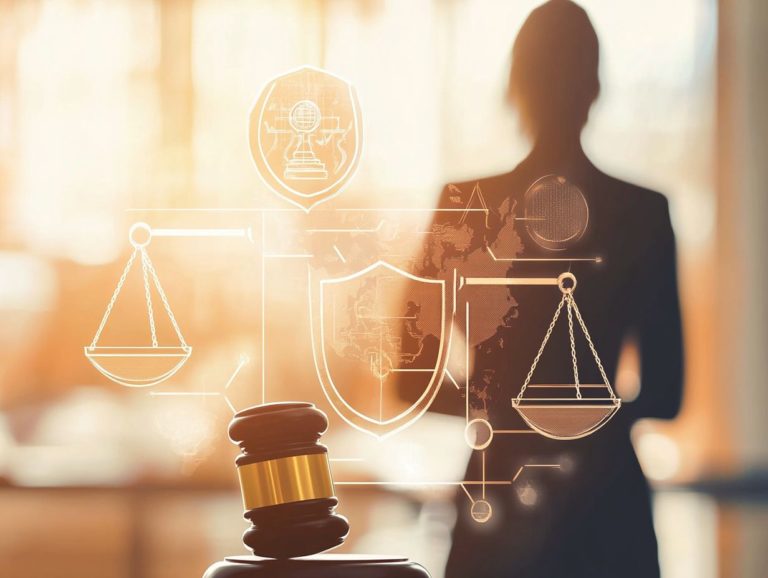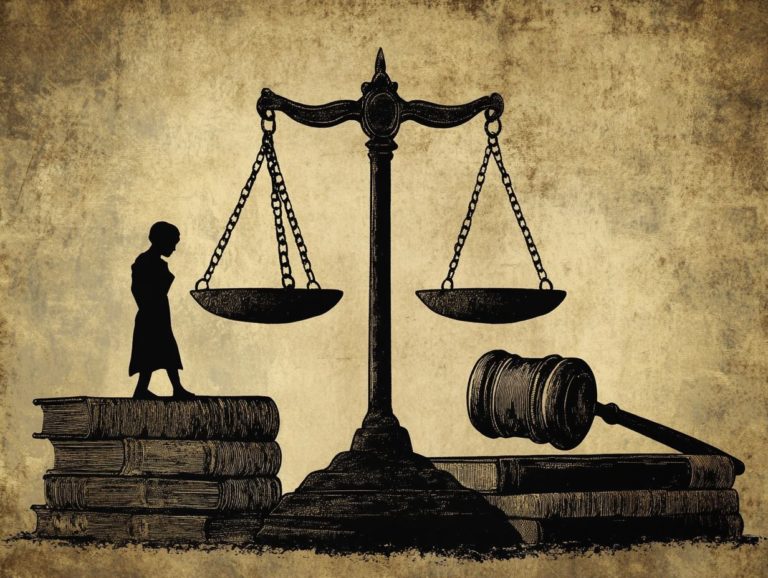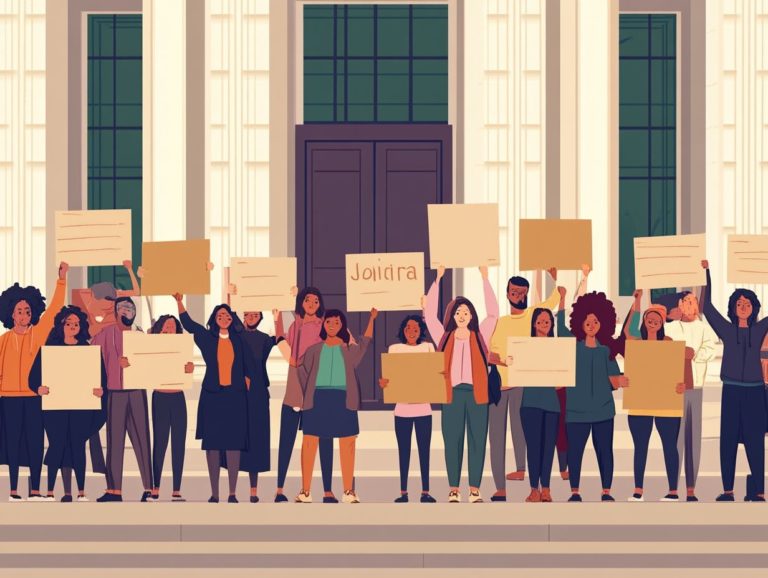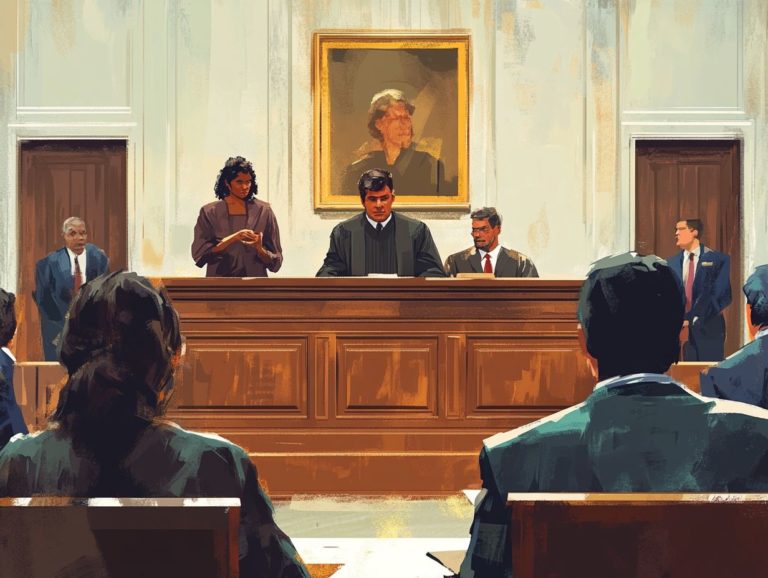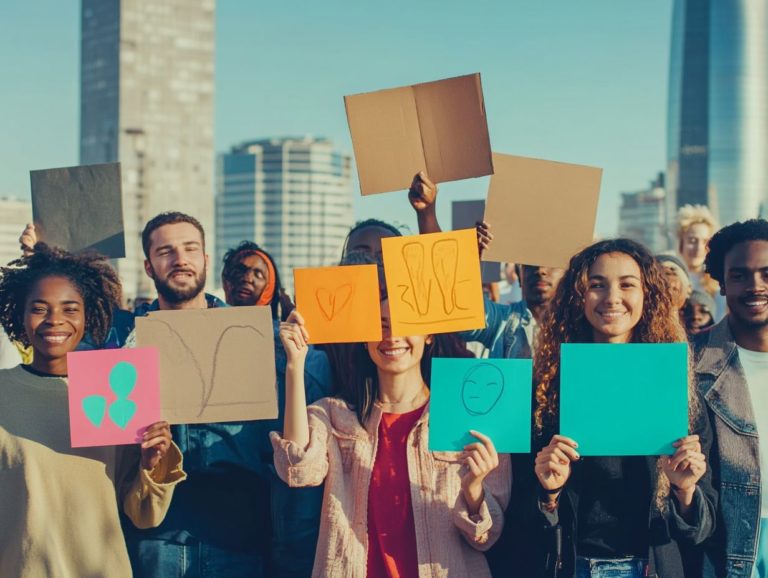Understanding Your Rights During Arrest
Being arrested can feel overwhelming, but understanding your rights empowers you to navigate the situation with confidence.
This article explores the crucial aspects of your rights during an arrest, breaking down the intricacies of Miranda Rights, when they apply, and the proactive steps you can take to protect yourself.
It examines the legal consequences of not exercising these rights and emphasizes the special protections for juveniles. Knowing your rights is essential for ensuring you re treated fairly within the legal system.
Contents
Key Takeaways:
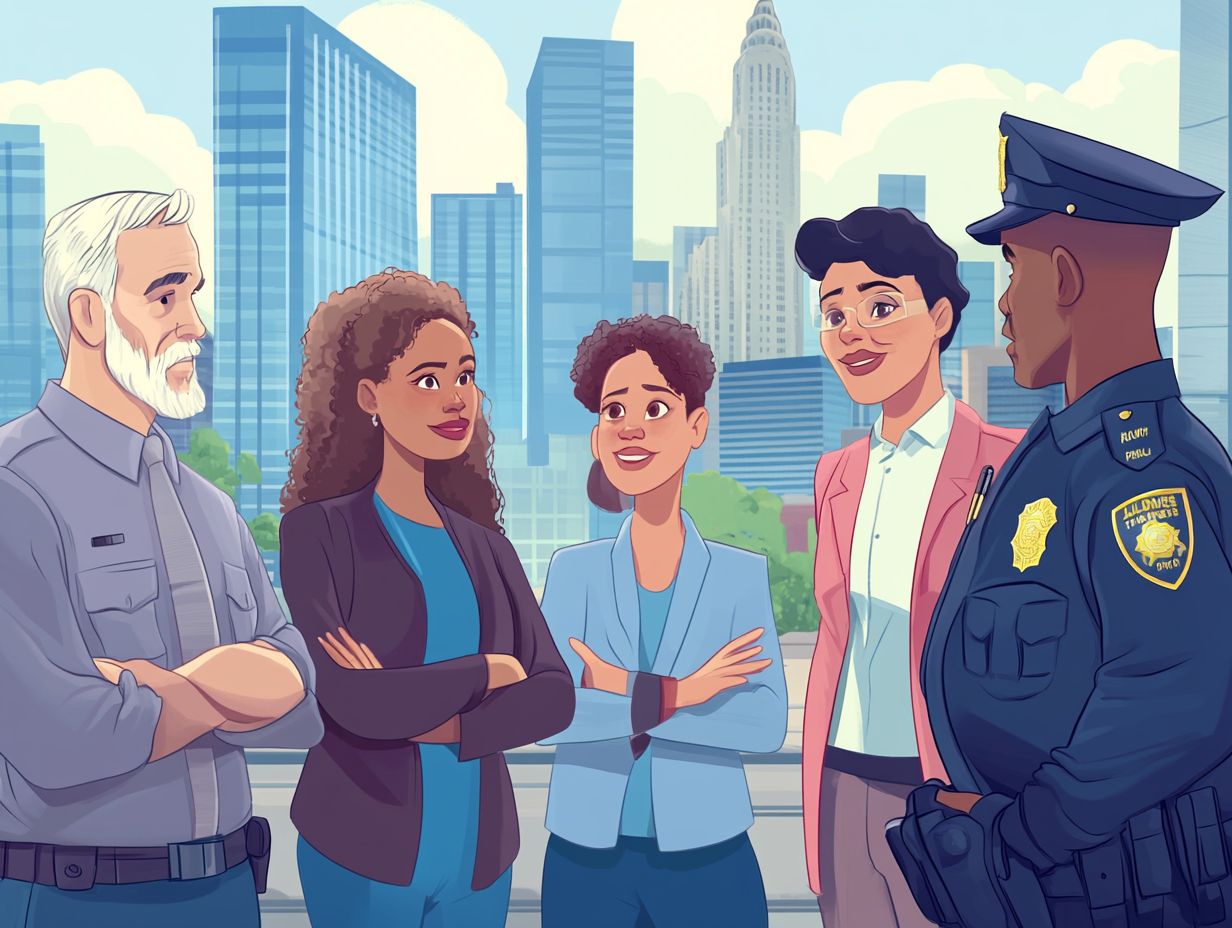
Know your rights to protect yourself during an arrest.
Police must read Miranda Rights in specific situations.
Failing to exercise your rights can have serious legal consequences.
Rights During Arrest
Understanding your rights during an arrest is crucial for safeguarding your constitutional protections, especially those related to your Miranda rights, established by the pivotal case involving Ernesto Miranda.
Police officers must inform you of these rights, which include your right to remain silent and your right to have an attorney present during any police questioning.
Knowing these rights can greatly affect your legal representation and help you shield yourself from self-incrimination in court.
Overview of Your Rights
When facing law enforcement, it s vital to know your rights. This understanding ensures you don t accidentally waive your Miranda rights, which include your right to remain silent and your right to consult with a lawyer.
Being aware of these protections helps you navigate interactions with police more effectively. For instance, exercising your right to remain silent can prevent unintentional admissions that may be used against you in court.
Having legal counsel present offers essential guidance on handling encounters with law enforcement while protecting your legal standing. Familiarity with these rights not only safeguards your immediate interests but also upholds civil liberties and accountability in the justice system.
Miranda Rights Explained
Miranda rights, established by the landmark Supreme Court ruling in 1966 regarding Ernesto Miranda, are crucial protections for individuals during police interrogations.
These rights ensure that you are aware of your privilege against self-incrimination, as outlined in the Fifth Amendment.
What are Miranda Rights?
Miranda rights include essential protections: the right to remain silent, the right to have an attorney present during police questioning, and the right to be informed that anything you say may be used against you in court.
These rights serve as vital safeguards against self-incrimination and ensure fair treatment within the legal system.
When you exercise your right to remain silent, you can avoid answering questions that could lead to legal repercussions, effectively protecting yourself from potentially damaging admissions.
Having an attorney present is equally important, as it ensures you receive informed legal guidance during high-pressure interrogations. Recognizing that anything said during questioning could be used in court highlights the need for careful communication.
By actively engaging with these rights, you can significantly influence the outcome of legal proceedings.
When Do Miranda Rights Apply?

Miranda rights apply during a police interrogation when you are in custody. This means law enforcement has either formally arrested you or has significantly restricted your freedom.
Instances Where Miranda Rights are Required
There are crucial moments when Miranda rights must be communicated clearly. This is especially important when a suspect is in custody and facing interrogation without probable cause or legal representation.
Imagine a situation where someone is arrested in public and taken to a police station for questioning. If officers start asking about the individual’s alleged involvement in a crime without establishing probable cause, they must inform that person of their Miranda rights.
This notification ensures the suspect understands their right to remain silent and to consult with a lawyer. Failing to provide this vital information can make any statements made during the interrogation inadmissible, jeopardizing the case.
This underscores the importance of these protections in the criminal justice system, as they shield individuals from coercive tactics.
What to Do When Arrested
If you face arrest, it s vital to stay calm and remember your legal rights.
Your right to consult with a lawyer can greatly affect the outcome of your case during any interaction with law enforcement.
Steps to Take to Protect Your Rights
To protect your rights during an arrest, clearly say you want to remain silent. Remember, silence cannot be held against you in court.
Requesting a lawyer immediately is equally vital. Once you’ve taken these steps, staying calm becomes essential.
Avoid discussing the situation further with law enforcement. Maintaining a respectful demeanor can help de-escalate tensions and prevent misunderstandings.
Keep a mental note of the circumstances surrounding your arrest, as these details could be invaluable to your defense later. Even casual conversations can be misinterpreted, so stick to your decision to remain silent until your lawyer arrives.
Recognizing that any statements made after invoking your right to silence could complicate your case reinforces the necessity for caution.
Possible Consequences of Not Exercising Your Rights
Failing to assert your Miranda rights during an arrest can put you at serious risk of self-incrimination. This mistake also increases the chance of your rights being violated by police conduct.
It s essential to be aware of these rights to protect yourself effectively in such situations.
What Happens If You Don t Know Your Rights
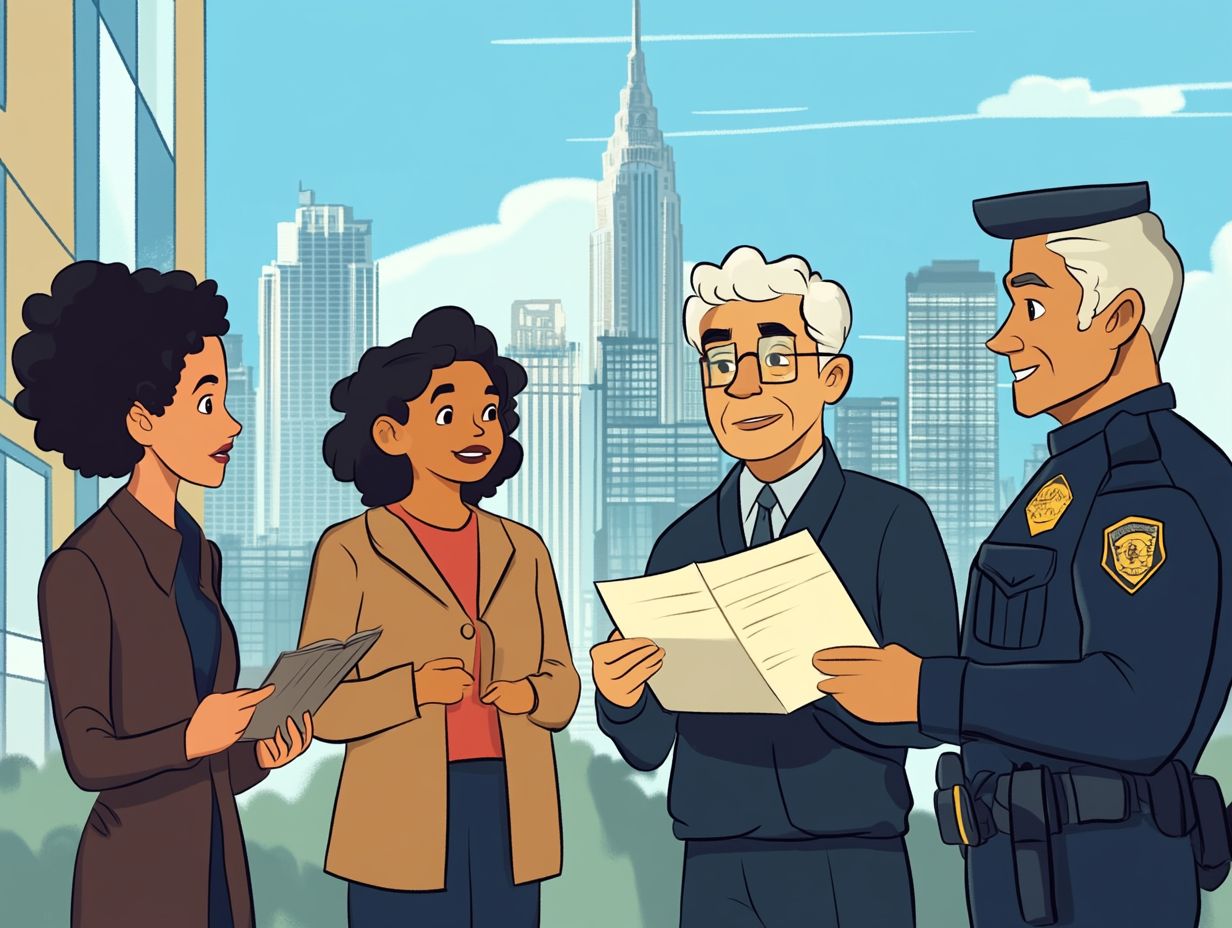
Not knowing your Miranda rights can lead to serious legal issues, including wrongful convictions and violations of your rights. Therefore, seeking legal advice immediately after an arrest is crucial.
If you find yourself in the criminal justice system without understanding these rights, you risk unknowingly waiving your protections, jeopardizing your defense. Ignorance can lead to harsher penalties or even wrongful incarceration.
Given the complexity of legal terminology and proceedings, professional guidance is not just advisable it s imperative. An experienced lawyer can clarify these rights for you, ensuring fair treatment and that your interests are protected throughout the legal process.
Navigating this system without proper legal insight can lead to disaster, emphasizing the need for timely advice.
Additional Protections for Juveniles
Juveniles facing arrest are granted extra protections under the law, acknowledging their unique vulnerabilities. This often requires them to have an attorney present during police questioning, ensuring their rights are protected throughout the process.
Special Considerations for Minors
Minors possess specific legal rights that set them apart from adults. These rights include the ability to have a parent or guardian present during police questioning and the requirement for law enforcement to provide clear information about these rights.
These protections are vital in ensuring that young individuals are not pressured into making statements without fully understanding the consequences. The law requires officers to inform juveniles of their right to have a lawyer present, which is essential for safeguarding their interests during potentially intimidating encounters.
With an adult by their side and a clear understanding of their rights, minors are better equipped to navigate the complex landscape of the legal system. This approach recognizes the vulnerability of youth and fosters a fairer process that respects their unique needs and circumstances.
Frequently Asked Questions
1. What are my rights during an arrest?
During an arrest, you have the right to remain silent, the right to an attorney, and the right to know the reason for your arrest. You also have the right to refuse any searches or questioning without a lawyer present.
2. Can I be arrested without being read my rights?
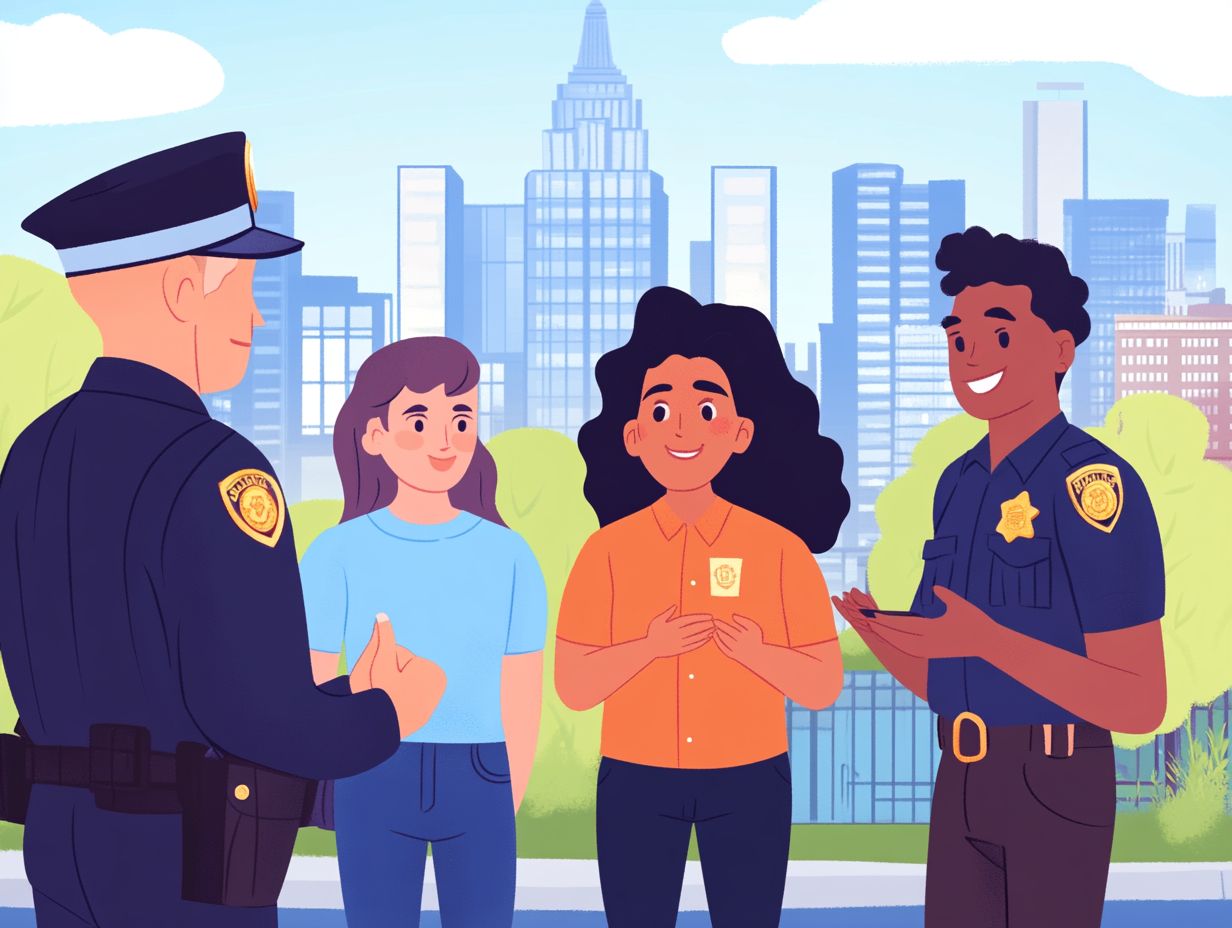
Yes, you can still be arrested without being read your rights. However, if you are questioned without being informed of your rights, any statements you make may not be admissible in court.
3. Can I refuse to be arrested?
No, you cannot refuse to be arrested if a police officer has a valid warrant or reasonable cause to believe you have committed a crime. However, you have the right to remain silent and request an attorney.
4. Can I be arrested for exercising my rights?
No, you cannot be arrested for exercising your rights during an arrest. If a police officer tries to prevent you from asserting your rights, remain calm and politely assert them.
5. Do my rights change depending on the reason for my arrest?
No, your rights during an arrest remain the same, regardless of the reason. These rights are protected by the Fifth and Sixth Amendments of the United States Constitution.
6. What should I do if I feel my rights have been violated during an arrest?
If you feel that your rights were violated during an arrest, consult with a criminal defense attorney. They can advise you on the best course of action and help you protect your rights in court.
Take charge of your rights stay informed!

